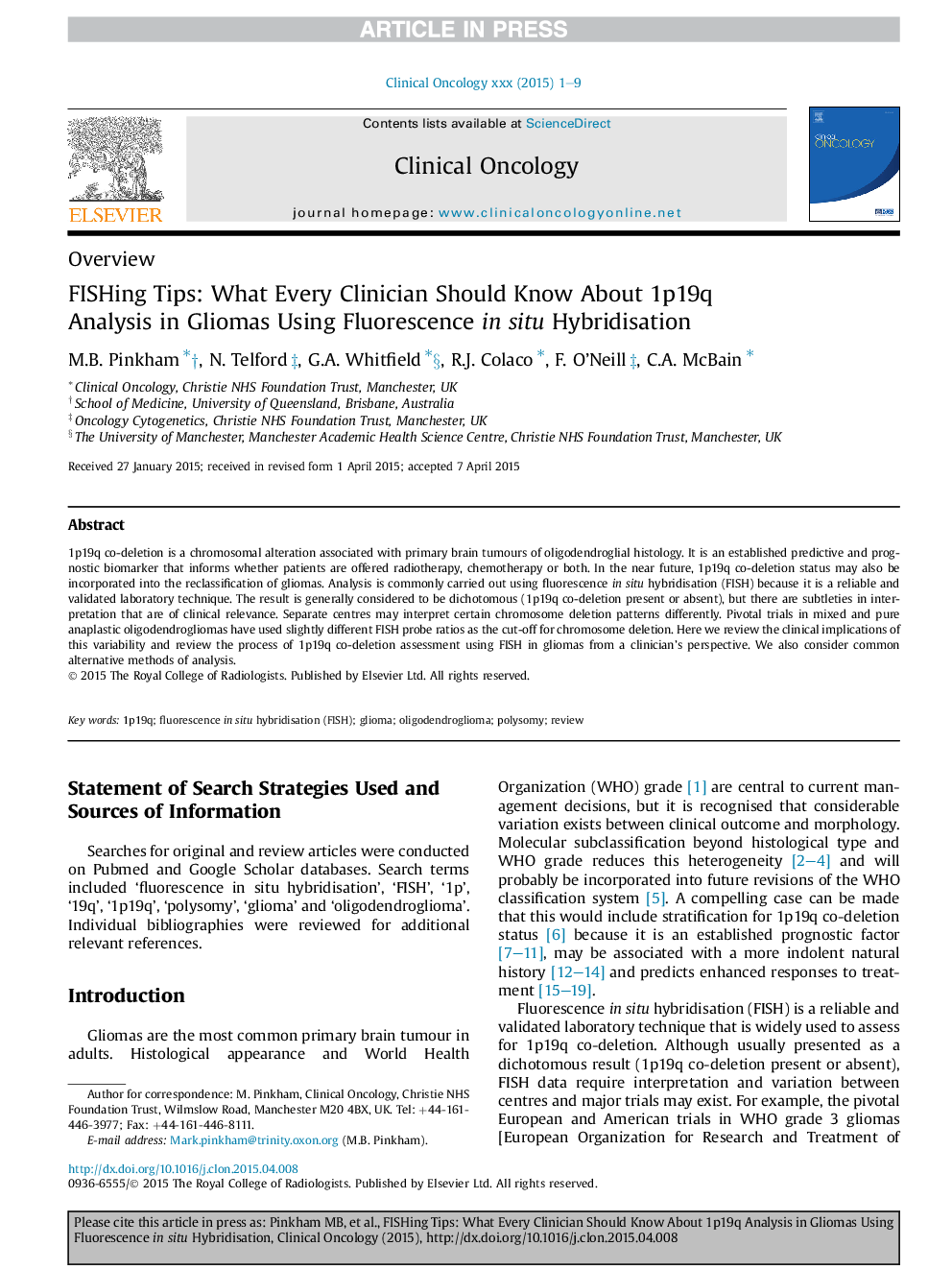| Article ID | Journal | Published Year | Pages | File Type |
|---|---|---|---|---|
| 5698205 | Clinical Oncology | 2015 | 9 Pages |
Abstract
1p19q co-deletion is a chromosomal alteration associated with primary brain tumours of oligodendroglial histology. It is an established predictive and prognostic biomarker that informs whether patients are offered radiotherapy, chemotherapy or both. In the near future, 1p19q co-deletion status may also be incorporated into the reclassification of gliomas. Analysis is commonly carried out using fluorescence in situ hybridisation (FISH) because it is a reliable and validated laboratory technique. The result is generally considered to be dichotomous (1p19q co-deletion present or absent), but there are subtleties in interpretation that are of clinical relevance. Separate centres may interpret certain chromosome deletion patterns differently. Pivotal trials in mixed and pure anaplastic oligodendrogliomas have used slightly different FISH probe ratios as the cut-off for chromosome deletion. Here we review the clinical implications of this variability and review the process of 1p19q co-deletion assessment using FISH in gliomas from a clinician's perspective. We also consider common alternative methods of analysis.
Related Topics
Health Sciences
Medicine and Dentistry
Oncology
Authors
M.B. Pinkham, N. Telford, G.A. Whitfield, R.J. Colaco, F. O'Neill, C.A. McBain,
